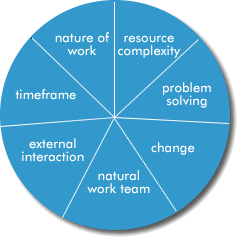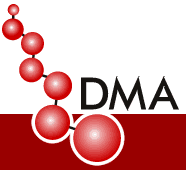
The DMA model determines Accountability Level
against seven key elements:
Nature of Work |
Refers to the work expected of a role, not an individual. It focuses on the core reason for the existence of a particular job and where it differs in essence from those above and below. The nature of work becomes more complex at each successive work level. It describes what the Organization expects and sanctions the individual to do. It defines the nature of their accountability for a distinct area of work. A higher level of authority sanctions the work expected of an individual or team. |
|
Resource Complexity |
Defines accountability for resources: people, technology, budgets and know-how. Roles in ascending levels are accountable for an increasingly extensive and complex array of resources. |
|
Problem Solving |
Describes the nature of problems to be solved at each level. At the lower levels, problems are concrete and operational in nature. At successively higher levels, problems become increasingly abstract and conceptual. |
|
Change |
Defines accountability for driving change or innovation. Whilst creativity can exist at all levels, not all levels are accountable for ensuring that innovation takes place or that creative ideas are implemented. At the lower levels, innovation involves further developing, modifying or improving something, which all ready exists. At the higher levels, the job-holder may be accountable for research and the integration of resources to ensure that identified innovations are effectively implemented. |
|
Natural Work Team |
Refers to the lateral interaction or collaboration with peers across the total Organization, which is needed to complete common tasks. In the lower levels, individuals collaborate with others to deliver outputs that tend to be localised. In the higher levels, individuals collaborate with others to deliver outputs that are international and even global. |
|
External Interaction |
Covers external interactions with consumers, customers, suppliers and significant external Organizations. In the lower levels, roles have clearly defined external contacts, such as suppliers and customers. At the higher levels, the external environment may include national, Regional or International Organizations, whose policies may have a significant impact on business results. |
|
Timeframe |
Focuses on the time over which the impact of the majority of the decisions of the job-holder will be felt. Accountable timeframes can range from minutes in some front line jobs to many years at the higher levels. |
